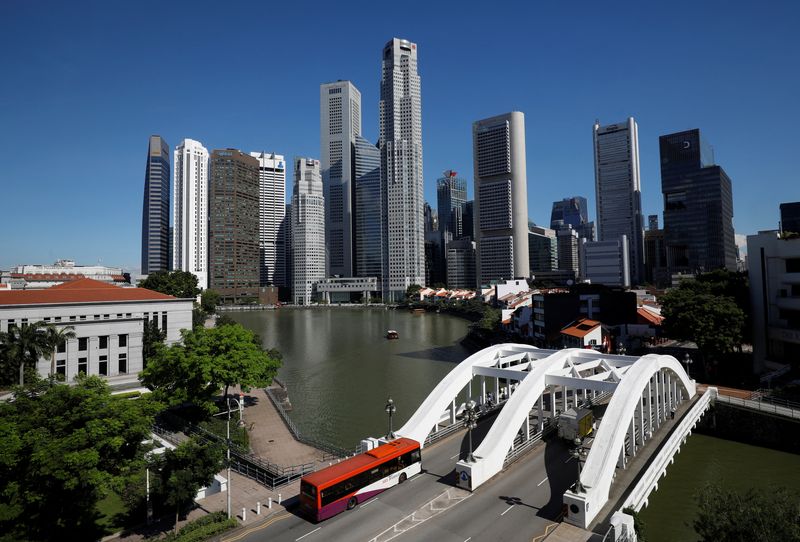SINGAPORE (Reuters) - Business investment commitments into Singapore dropped about 31% last year, marking the first decline in five years and after hitting a more than decade high in 2020, government data showed on Wednesday.
Commitments for investments in fixed assets such as facilities, machinery and other equipment shrank to S$11.8 billion ($8.78 billion) in 2021, but remained above a medium-to- long-term goal of S$8 billion to S$10 billion, according to the Economic Development Board (EDB).
"2021 was an unusual year, (there were) many disruptions as a result of COVID...the numbers in 2020 were actually quite exceptional. And we did not expect to repeat that in 2021," Beh Swan Gin, chairman of the EDB, said.
Commitments on total business expenditure, which includes wages and rental, fell about 24% to S$5.2 billion.
Most of the 2021 commitments came from the bio- and medical technology fields, and EDB is "very optimistic" about further growth this year, Jacqueline Poh, managing director EDB, said.
Biotechnology and pharmaceutical firms like BioNTech and Sanofi (NASDAQ:SNY) have announced plans to invest in production sites in Singapore.
Commitments in 2021 are projected to directly contribute S$ 16.8 billion annually to the economy with biomedical manufacturing and electronics, which includes semiconductor and Biotech firms, forming more than a half.
While 2021 was a challenging year due to COVID-19 travel curbs, Singapore saw some large investments by semiconductor companies to meet demand from a global chip shortage.
Semiconductors will still be a strong contributor to investment commitments in the next few years, Poh said.
Singapore's economy grew 7.2% in 2021, its fastest pace in over a decade, rebounding from a record 5.4% contraction in 2020.

Labour shortages, partly caused by COVID-19 travel curbs, as well as rising energy costs and geopolitics, were some of the risk factors going forward, Beh said.
($1 = 1.3434 Singapore dollars)